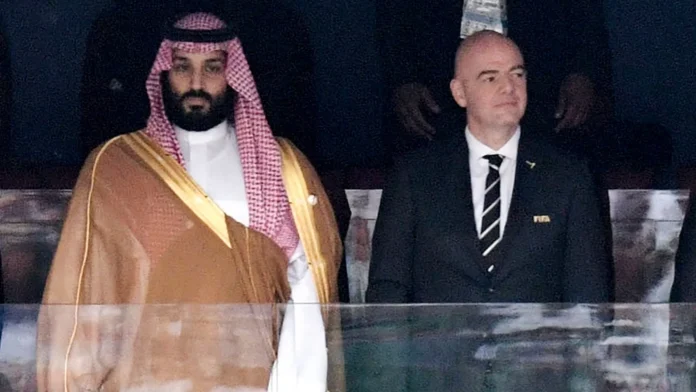As Saudi Arabia prepares to officially secure the hosting rights for the 2034 FIFA World Cup, the United Nations High Commissioner for Human Rights, Volker Türk, has vowed to advocate for the protection of migrant workers’ rights during the tournament’s extensive preparations.
This promise comes just two days before FIFA is expected to confirm the kingdom as the sole candidate for the prestigious event, in an online meeting scheduled for Wednesday.
The plans for Saudi Arabia’s World Cup bid involve the construction of eight new stadiums and the addition of 175,000 hotel rooms, all of which will depend heavily on migrant workers, primarily from South Asia.
However, the kingdom’s current labour practices, which have been widely criticized by human rights groups, have raised serious concerns.
Many fear that workers may face exploitation and inadequate protections, similar to the situation seen during Qatar’s 2022 World Cup preparations.
During a news conference on Monday, ahead of the UN’s Human Rights Day, Türk addressed these concerns, reiterating the importance of human rights in the context of major sporting events.
While the UN has not been directly involved with FIFA, Türk made it clear that the organization is committed to ensuring human rights are integrated into all such events.
“What we are involved in, though, is to make sure that indeed, in each and every major sporting event, human rights are part and parcel of the way that sports events are not only conceived but also conducted,” Türk stated.
Saudi Arabia’s World Cup preparations have already drawn scrutiny due to its labour practices.
The International Labour Organization (ILO) has initiated an investigation following a formal complaint by trade unions regarding the kingdom’s treatment of migrant workers.
Two US senators have also urged FIFA to reconsider awarding the tournament to Saudi Arabia, citing ongoing human rights concerns, especially in relation to the rights of foreign workers.
Critics have argued that FIFA has not done enough to address these issues, particularly considering the organization’s close ties to Saudi Crown Prince Mohammed bin Salman.
Many believe FIFA could use its influence to demand stronger labour protections, but the governing body has yet to take decisive action.
In response to these concerns, Türk assured that the UN would provide guidance to the tournament organizers, should Saudi Arabia’s bid be approved.
He emphasized that the focus would be on ensuring that migrant labour standards are respected and that all human rights issues are considered in the planning and execution of the World Cup.
“Whatever the decision is, to whoever is going to organise it, we will provide precisely that type of advice to the organisers,” Türk added, stressing that protecting workers’ rights would be a top priority.
The Saudi World Cup bid has promised to collaborate with the ILO and local agencies, but it notably excludes international labour unions and human rights groups, which have limited access within the country.
This has further raised alarm among critics, who worry that the absence of independent oversight could undermine the protection of workers.
As FIFA moves closer to confirming Saudi Arabia as the host for the 2034 World Cup, attention is focused on whether the kingdom can meet the human rights standards that will be critical to ensuring a fair and just tournament for all involved.

